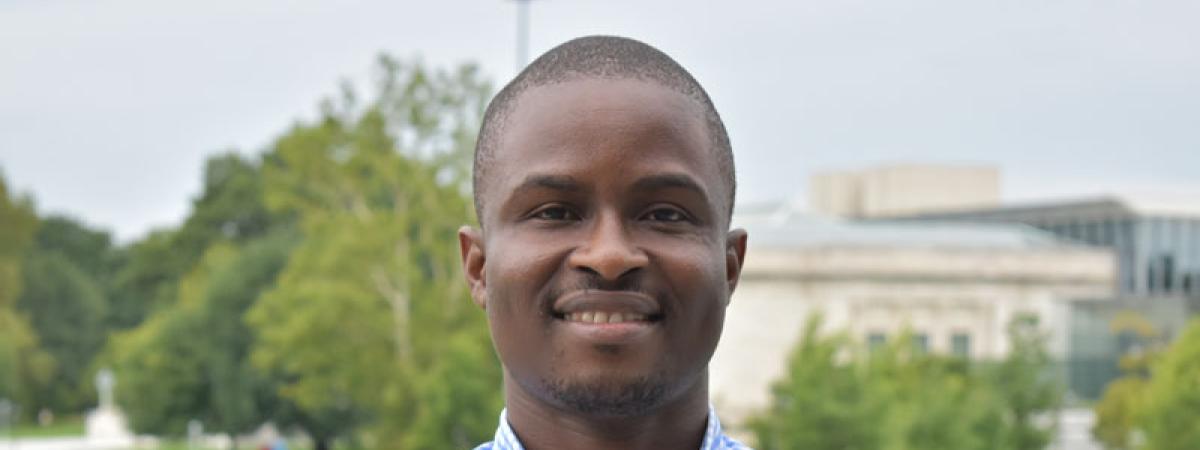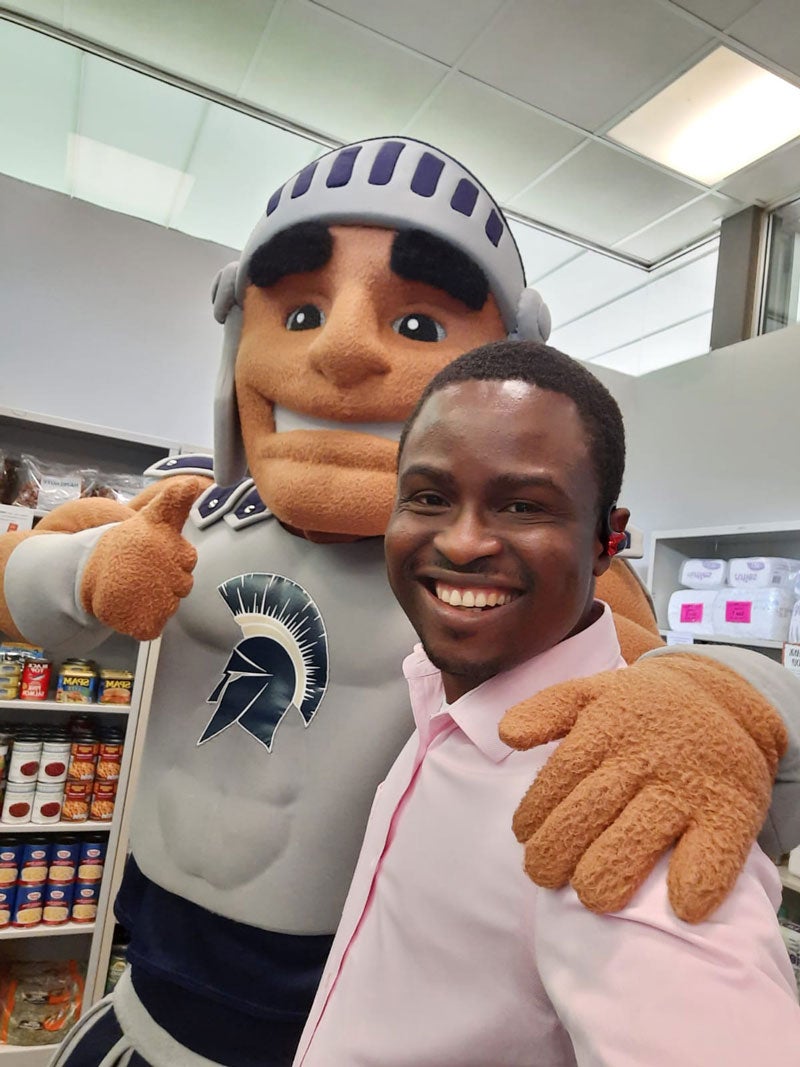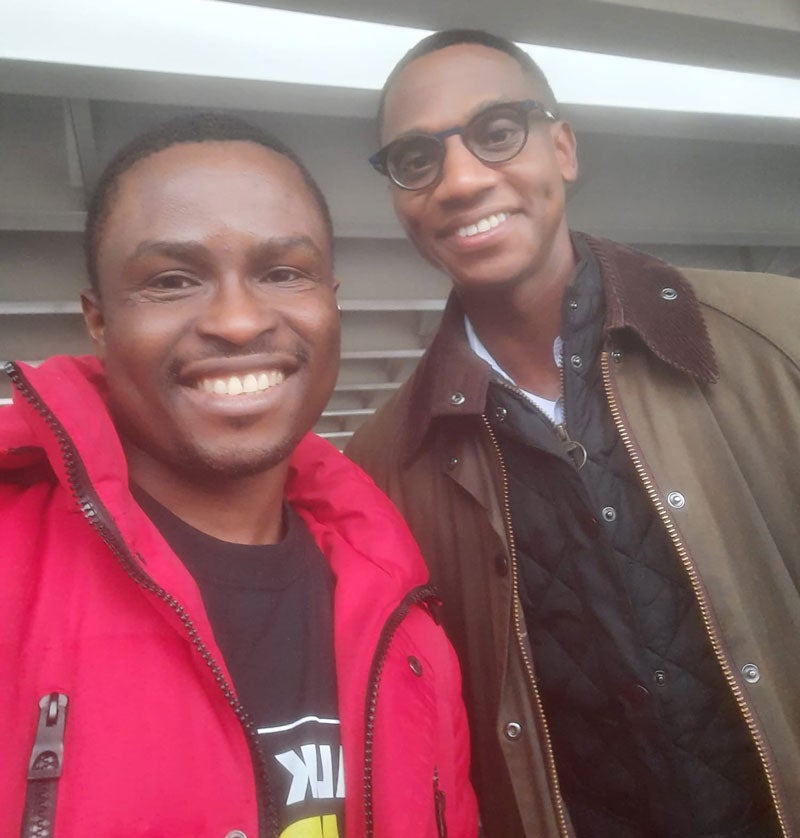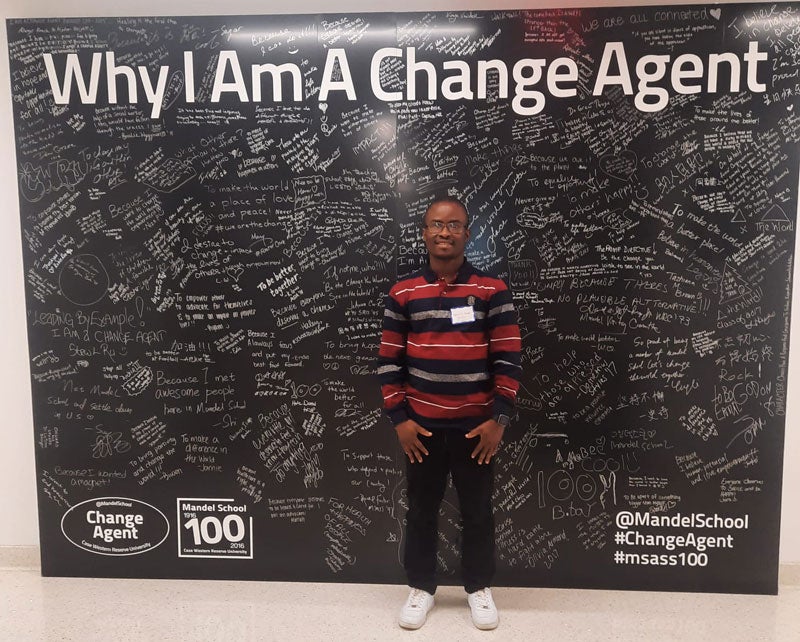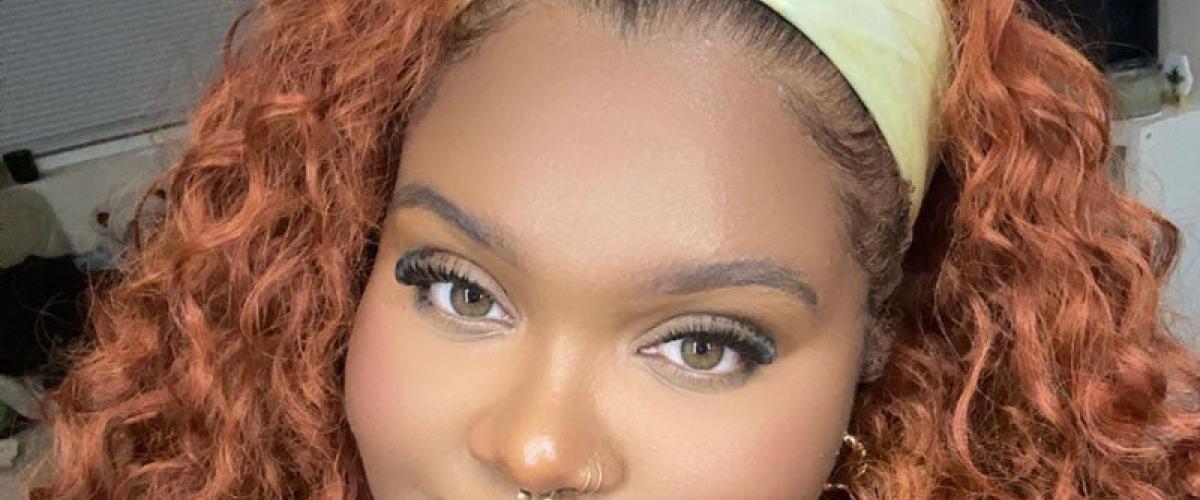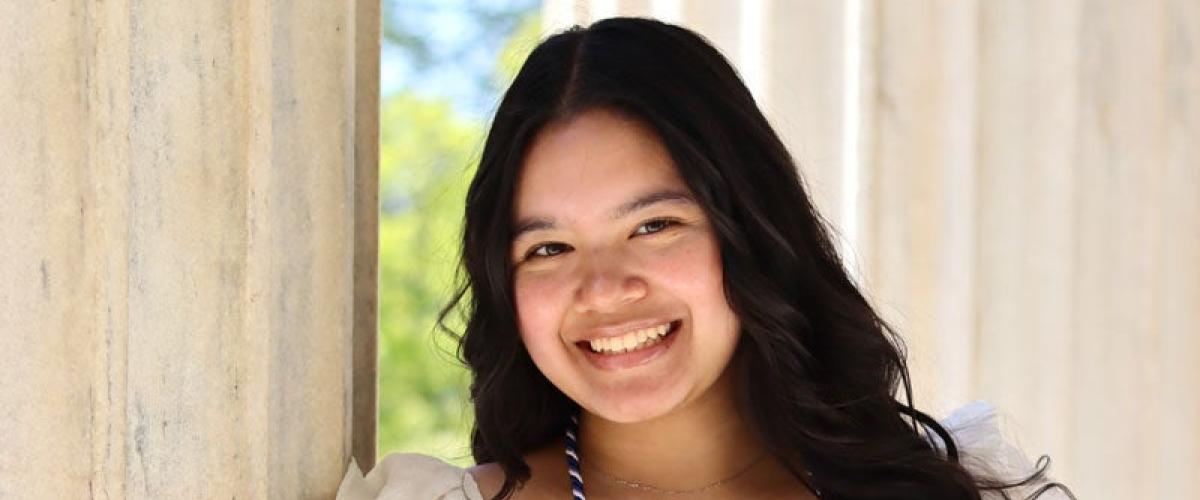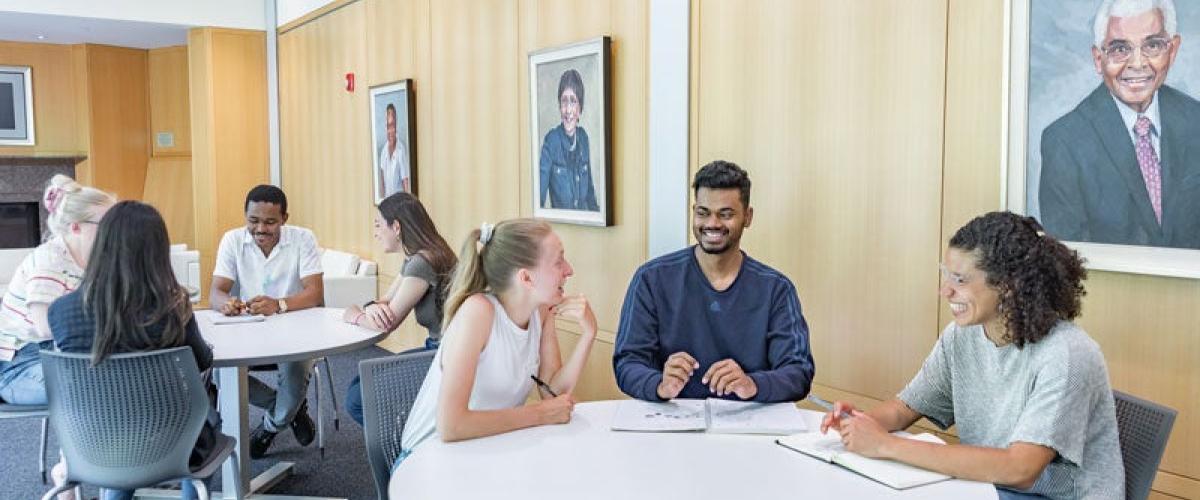Class Year: May 2025
Degree Program: MSW On-Campus
Concentration: Community Practice for Social Change
Hometown: Nigeria
Field Education Organization: Environmental Health Watch in Cleveland, Ohio
Before beginning at Case Western Reserve University, what were you doing?
Back in Nigeria after my first degree in applied economics, I was a volunteer Knowledge Development Facilitator with the United Nations for Sustainable Development Goals. I started volunteering with the Greater Cleveland Food Bank on my arrival in Cleveland before beginning at CWRU.
Why did you choose to study social work and/or nonprofit management?
I chose to pursue the Master of Social Work program because I am passionate about being a change agent at both the micro and macro levels. My experiences in community service opened my eyes to the urgent need for accessible, compassionate mental health support, as well as access to basic needs, especially among marginalized populations. This field allows me to combine direct service with broader advocacy efforts, addressing individual needs while also working to reform the systems that impact well-being. Social work gives me the tools to create lasting change grounded in empathy, justice and equity.
Why did you choose CWRU/the Mandel School?
I chose CWRU because of its strong commitment to social justice, community engagement and academic excellence in social work. The Mandel School’s focus on both clinical practice and policy advocacy aligned perfectly with my goal to make an impact at both the individual and systemic levels. CWRU also offers rich opportunities for hands-on learning, community partnerships and leadership development, which are central to my passion and purpose.
Describe your field education practicum experience and any work/projects you have done.
At Environmental Health Watch (EHW) I have the opportunity to apply theoretical knowledge to a real-world setting focused on addressing lead exposure and its associated risks. I have been able to develop my communication, critical thinking and reflection skills as I engage with homeowners, tenants and collaborative agencies. I have been able to contribute to data collection efforts, analyzing information related to lead safe certification awareness/compliance among tenants and rental homeowners while identifying high-risk areas.
What are you doing in field that you’re planning to bring with you into your career?
Collaboration is a big part of the work at EHW and I would love to bring that into my career. Also, teamwork—recognizing that each person has an area of strength and an area of growth that we can always use to work to complement each other. Lastly, empathy is key, as I put myself in the shoes of the population that we serve.
What is something you have learned during your practicum that you have found to be the most helpful in your social work journey?
I have learned the practice of self-care, which helps to maintain total well-being and prevent burnout, because the social work profession can be very demanding.
Who is someone you met during your field education that will change the way you practice?
We went out for the annual Cleveland Lead Walk to create awareness about lead poisoning on a rainy day and right there, I met Cleveland Mayor Justin Bibb! He inspired me with his leadership style to meet the people where they are no matter what. I reflected on it and concluded that leadership is not just about knowing or showing the way, but also walking the way.
Describe any extracurricular activities you're involved with on- or off-campus.
I am actively involved in several activities outside of class, most notably as the graduate assistant at the CWRU Community Pantry (previously the Physical Resource Center). I took on this role to help address food insecurity on campus and create a welcoming space for all students, staff and community members. Serving under the Office of Students Activities and Leadership also allowed me to be a part of many university traditional events, such as Homecoming and the Spring Activities Fair. I was also a graduate student representing the Mandel School on the Graduate Student Council. I also served on the Emerging Professionals Council of the Greater Cleveland Food Bank, participated in the Lead Safe Cleveland advocacy effort, and was a leadership council member with Swipe Out Hunger. As a clinical intern with OhioGuidestone, I was trained in trauma-informed care and evidence-based interventions, and I provided psychotherapy to a diverse population, including adults, youth and children, an experience that deepened my passion for mental health and strengthened my clinical skills.
I got involved in these initiatives because they align with my passion for social justice and community service, and they allowed me to apply my classroom learning to real-world impact.
What are you most looking forward to this semester?
Balancing adjustment, learning and relearning.
What do you hope to do with your degree?
Transform communities through programs, policies and projects as a change agent.
What is your favorite thing about CWRU/the Mandel School?
My favorite thing about CWRU is its strong culture of community engagement and support. There is a great citadel of learning rich in culture and diversity here. One of my favorite memories is seeing the impact of our work at the CWRU Community Pantry, especially when students and community members would express how much the pantry meant to them. Moments like these reminded me that our efforts made a real difference in people’s lives and reinforced my commitment to service and social work.
What is your favorite thing about Cleveland?
Cleveland is a home away from home. The people here are caring and hospitable.
As a graduating student, what's a piece of advice/encouragement you'd like to share with current students?
My advice to current students is to stay rooted in your purpose and never underestimate the impact of small acts of service. Whether in the classroom, community or in conversation, show up with empathy, humility and a willingness to learn. Your time at CWRU is not just about earning a degree, it’s about becoming a person who leads with heart and creates change that lasts. Stay engaged, stay curious and trust that every step you take matters.
What are your post-graduation plans?
After graduation, I plan to enter the field and begin making a meaningful impact as a licensed social worker. I recently passed my LSW licensure exams! I’m excited to apply my training in mental health and community engagement to support individuals and advocate for systemic change. While my immediate focus is on practice and service, I’m also open to pursuing a PhD in the future to deepen my expertise and expand my ability to drive change on a larger scale.


